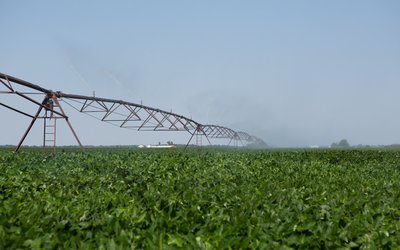Climate change impacts on groundwater and dependent ecosystems
January 12, 2015

Future climate change will affect recharge rates and, in turn, the depth of groundwater levels and the amount of available groundwater. Groundwater recharge depends on the distribution, amount and timing of precipitation, evapotranspiration losses, snow cover thickness and snow melt characteristics, and land use/land cover. The properties of the aquifer are also essential; small, shallow unconfined aquifers respond more rapidly to climate change, whereas larger and confined systems show a slower response. It is expected that in snow-dominated regions, warmer winters will cause snow melt and groundwater recharge and runoff to occur over longer periods and earlier in the year. Increased aquifer recharge will increase wintertime groundwater levels, whereas in spring and summer the groundwater levels may decrease with a warmer climate.
Southern Europe will have less recharge overall and the region may become more water stressed than at present, with any increase in winter recharge unable to compensate for the reduced autumn recharge. Southern Spain is predicted to be among the worst affected regions in Europe, with almost total disappearance of recharge.
Changes in groundwater recharge patterns may increase the risk of leaching of contaminants (pesticides for instance) during winter. Reduced groundwater level increases the risk of contamination mainly from sea water intrusion in coastal aquifers. Besides, changes in river flow affect connected aquifers: reduced minimum flow, for instance, can lead to higher riverine concentration in wastewater effluents as waters are less diluted posing a risk to groundwater, with possible consequences for aquifers. Also, the effect of climate change on air temperature and river temperatures may influence groundwater temperatures and dissolved oxygen concentrations. Because many biogeochemical processes in groundwater are temperature dependent, climate-induced changes that affect groundwater temperature may negatively affect the quality of groundwater.
From an ecological point of view, ecosystems will show a more contrasted variation in temperature and nutrient concentrations when fed by local groundwater systems compared with regional ones. As a consequence, it is likely that larger systems will be more resilient to climate change.
Source: Kløve et al., 2014. Journal of Hydrology 518: 250–266.
Photo: Kecko (www.flickr.com)








